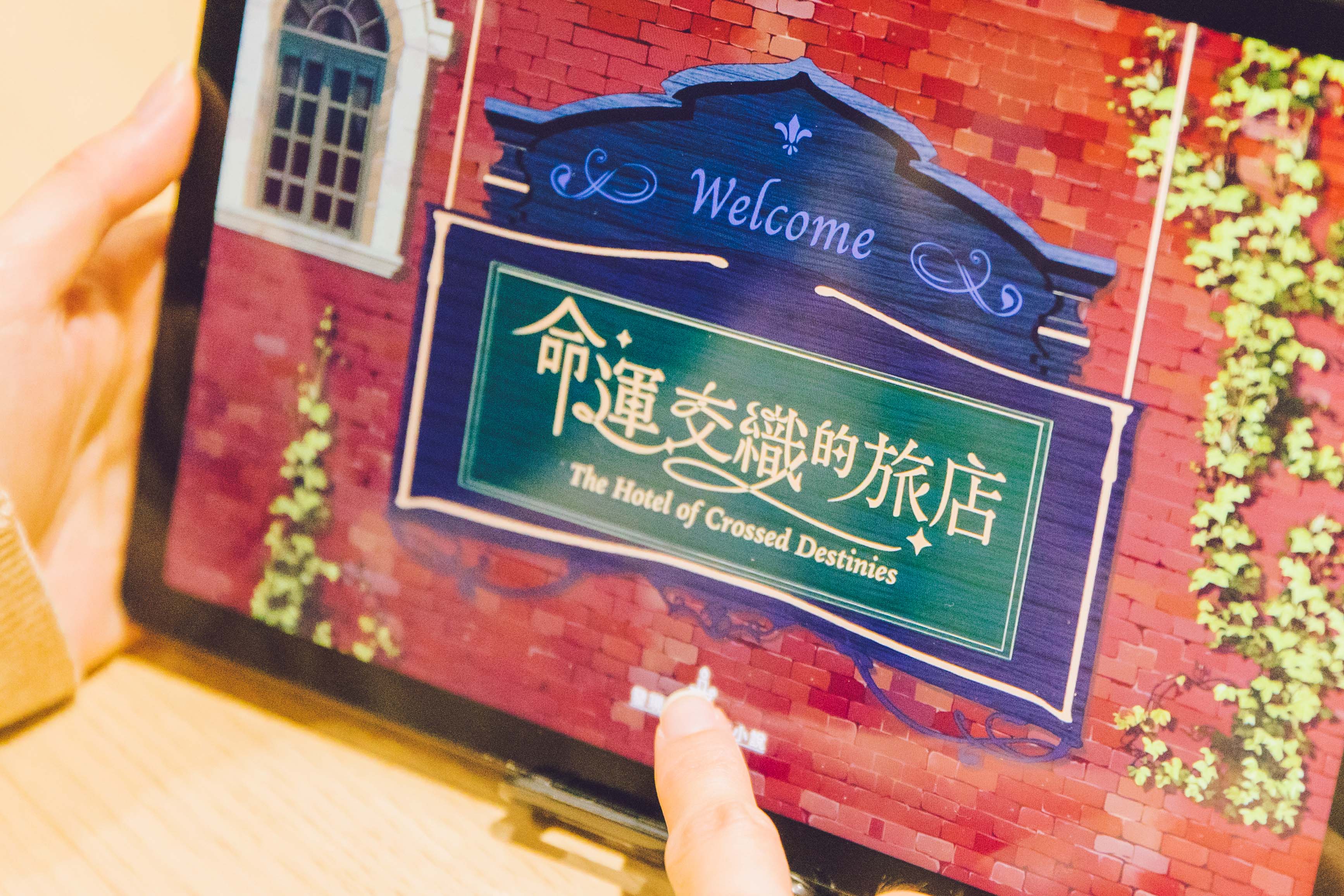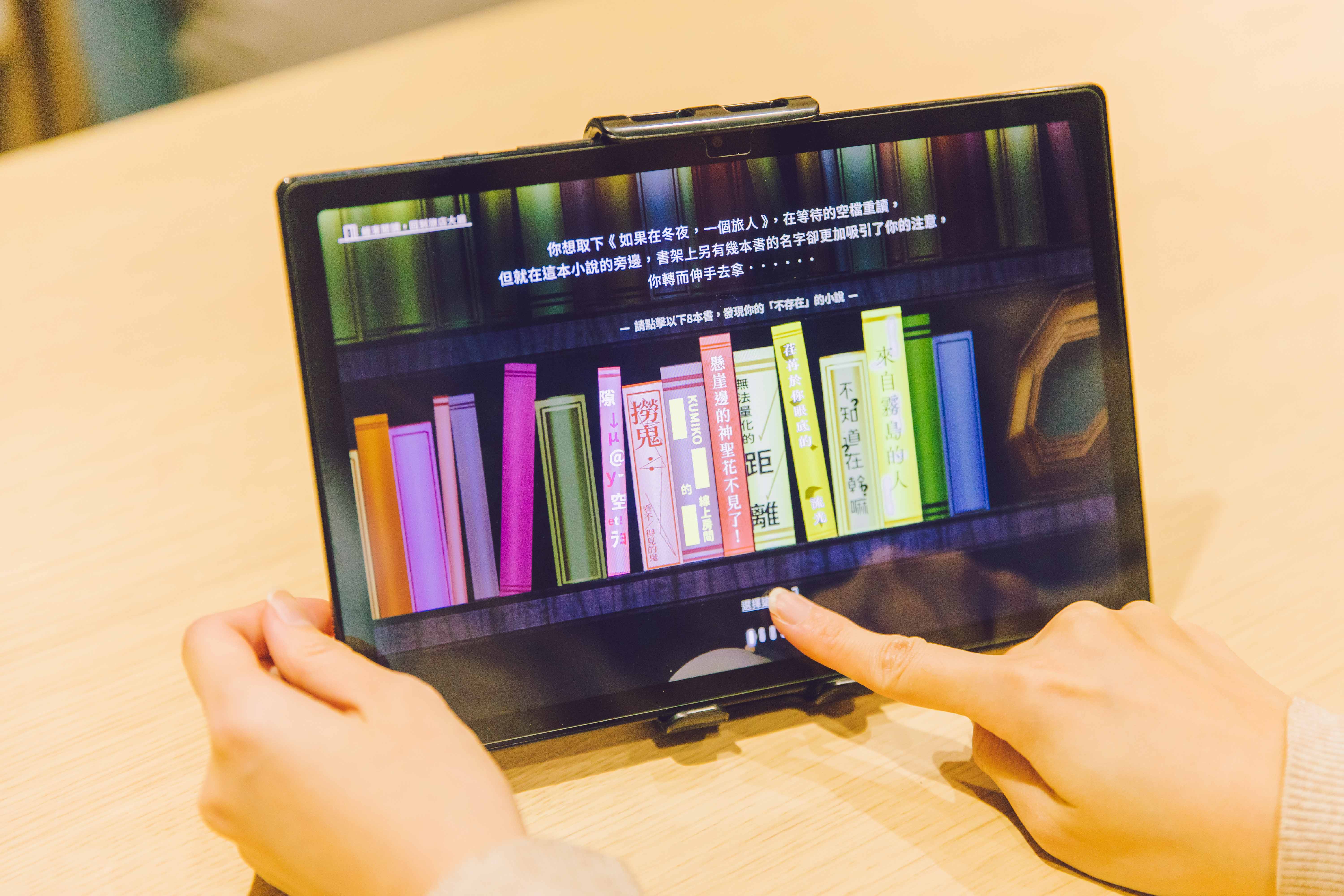
Acquiring a Non-existent Novel Amid Misunderstanding
At a time when AI is transforming the world at incredible speed, TiBE’s Digital Pavilion has been given a brand-new mission: to use artificial intelligence to redefine how books are structured and written. The curation draws inspiration from Italian writer Italo Calvino’s classic If on a Winter’s Night a Traveler, centering on the theme of “acquiring a novel that does not exist amid misunderstanding and misplacement.”
The curatorial team has invited Terao Tetsuya、Pei-fen Hsu、Yi-hui Hsiao、Li Ang、敷米漿、Chen Xue、Marula Liu、Hsin-Hui Lin and eight other writers to co-create,led by Hsin-Hui Lin as the prompt engineer, guiding the model to learn the writing styles of these writers and, in turn, generate a novel text that appears real yet is entirely fictional.

Choosing and piecing stories together at your fingertips
The curator Tsung Wei-Wang, Deputy GM & Editor-in-Chief of Unitas, and his team are inspired by the fragmented structure of If on a Winter’s Night a Traveler, the project builds a fictional, fantastical hotel. In this hotel, the contents and bindings of books are deliberately misplaced. Like travelers, visitors tap, piece together, and rearrange fragments of text from the novel with their fingertips.
The challenge of this project lies in finding a balance between AI’s' random generation and the narrative structure of literature. Literature emphasizes coherence in logic and emotion, whereas AI-generated text is unpredictable. The question was how to ensure that these fragments, once assembled, could still form a readable and comprehensible short story. Visitors of the exhibition are free to select passages from the eight writers, and the AI then rearranges and recombines them to create a unique novel. Although the generation was totally random, an unexpected logical yet poetic narrative emerges between the fragments, making each "non-existent novel" a distinctive and intimate reading experience.

Back from digital to physical: when reading becomes a performance art
The content that visitors create through interactive collages is rearranged by AI and no longer confined to a screen—it is printed onto thermosensitive paper as a “pocket novel” that can be carried and read on the go. This design was inspired by London’s “Storytelling Vending Machine,” symbolizing the possibility of returning from the virtual world to physical reading. Today, reading in physical form has long surpassed the mere transmission of information; it has become a performative art form. When a reader holds a freshly generated “non-existent novel” while moving through the exhibition, they are no longer just an audience member—they become part of the exhibition itself.
This AI-assisted, reader-participatory literary creation not only expands the boundaries of writing but also rethinks the very nature and future of reading.

Host|Ministry of Culture
Organizing Unit|TBFF–Taipei Book Fair Foundation
Curatorial Unit|UNITAS Publishing Co.
Interactive Technology Director|IF Plus
Curator|Tsung-Wei Wang
Executive Director|UNITAS Publishing Co.、Ariel Hsiao
Curatorial Content Planning|UNITAS Publishing Co.
Experience Planning|Kiki Huang
Programming & Development|Pocky Lin
Visual Design│Hanna Zhang
Dynamic Image Design|Aaron Chang
Photography|YJ
Image Rights |Courtesy of Unitas Literary Magazine